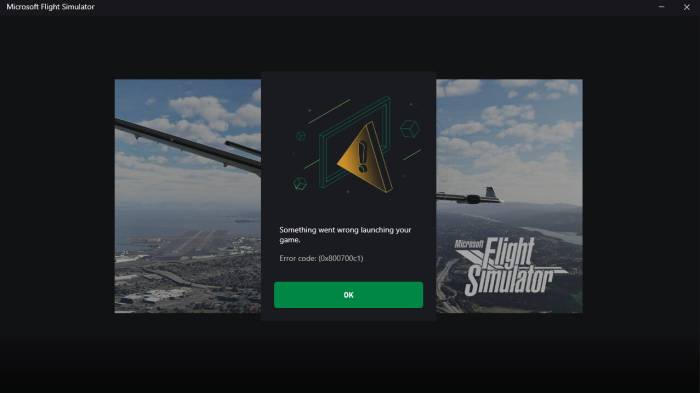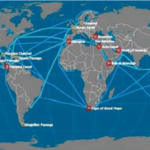Flight Game Hacked: This isn’t just about cheating; it’s a complex ecosystem of code manipulation, legal battles, and community dynamics. We’ll explore the various types of hacks, from minor tweaks to game-breaking exploits, examining their impact on gameplay, the ethics involved, and the legal ramifications for both players and developers. We’ll delve into the motivations of hackers, the economics of the cheat market, and the ongoing arms race between developers and those seeking to circumvent game integrity.
This investigation will uncover the intricate strategies used to detect and prevent hacks, highlighting the technological challenges and the role of anti-cheat software. We’ll analyze the future trends in flight game hacking, exploring emerging techniques and the innovative countermeasures being developed to protect the integrity of future flight simulators. Get ready for a comprehensive look into a world where virtual skies are constantly under siege.
Types of Flight Game Hacks
The world of flight simulation gaming, while immersive and realistic, is not immune to the allure of modification. Players often seek to enhance their experience, overcome challenges, or simply experiment with the game’s mechanics through the use of hacks. These modifications range from subtle adjustments to outright game-breaking alterations, significantly impacting the gameplay and the overall balance of the virtual world.
Understanding the different types of flight game hacks and their effects is crucial for both players and developers.
Common Flight Simulation Game Hacks
Several common hacks target various aspects of flight simulation games. These hacks manipulate the game’s underlying code to achieve specific advantages. Examples include unlimited fuel, increased aircraft speed and maneuverability, enhanced damage resistance, and the ability to teleport the aircraft to different locations. These modifications alter the core gameplay loop, often removing the inherent challenges and strategic elements designed by the developers.
Impact of Hacks on Gameplay Mechanics, Flight Game Hacked
The impact of flight game hacks varies greatly depending on the specific hack employed. Unlimited fuel, for example, removes the need for careful fuel management, a crucial aspect of realistic flight simulation. Increased speed and maneuverability significantly reduce the skill gap, allowing less experienced players to outperform those with more expertise. Similarly, enhanced damage resistance diminishes the risk and consequences of engaging in dangerous maneuvers, thereby trivializing a key element of realistic flight combat.
Teleportation hacks completely bypass the navigational aspects of the game, negating the need for strategic flight planning and route optimization.
Methods of Implementing Flight Game Hacks
Flight game hacks are typically implemented using various methods, often involving reverse engineering the game’s code to identify vulnerabilities. This can involve modifying executable files, injecting custom code into the game’s memory, or utilizing third-party tools and trainers that automatically apply these modifications. Some hacks are relatively simple to implement, while others require advanced programming skills and a deep understanding of the game’s internal workings.
The sophistication of the hacking method often correlates with the extent of the modification’s impact on the game.
Comparison of Hack Types and Their Impact on Game Balance
| Hack Type | Gameplay Mechanic Affected | Impact on Game Balance | Example |
|---|---|---|---|
| Unlimited Fuel | Fuel Management | Severely Disrupts; removes strategic element | Player can fly indefinitely without refueling. |
| Increased Speed/Maneuverability | Flight Dynamics | Significantly Disrupts; reduces skill gap | Aircraft handles far better than intended, allowing for unrealistic maneuvers. |
| Enhanced Damage Resistance | Aircraft Durability | Moderately Disrupts; reduces risk/consequences | Aircraft takes significantly less damage from enemy fire or collisions. |
| Teleportation | Navigation/Flight Planning | Severely Disrupts; removes navigational challenge | Player can instantly move their aircraft to any location on the map. |
Ethical and Legal Implications: Flight Game Hacked

The use of flight game hacks presents a complex interplay of ethical considerations and legal ramifications. While seemingly innocuous within the virtual world, these modifications can have significant consequences for both the players employing them and the developers whose games are affected. Understanding these implications is crucial for navigating the often-blurred lines between playful modification and serious offense.The ethical concerns center around fairness, competition, and respect for intellectual property.
Using hacks to gain an unfair advantage undermines the spirit of competition and can ruin the experience for other players who abide by the rules. It’s akin to cheating in a traditional sport – it’s not just about winning; it’s about the integrity of the game itself. Furthermore, distributing or creating these hacks often involves circumventing copyright protections, a clear breach of ethical conduct.
Legal Ramifications for Players and Developers
The legal consequences of flight game hacking vary considerably depending on the specific hack, its use, and the jurisdiction. For players, the penalties can range from account suspension or permanent bans to, in more extreme cases, legal action under copyright infringement or other relevant laws. Developers also face legal challenges. They must actively protect their intellectual property and take measures to prevent hacking, and failure to do so might expose them to legal liability.
The complexity arises from the decentralized nature of online gaming, making it difficult to track and prosecute offenders effectively.
Jurisdictional Differences in Legal Consequences
Legal frameworks surrounding software piracy and unauthorized modification differ significantly across countries. Some jurisdictions have stricter laws and harsher penalties than others. For example, countries with robust intellectual property rights protection might pursue legal action more aggressively against both players using hacks and those creating and distributing them. Conversely, regions with less stringent enforcement may see fewer consequences for individuals caught using flight game hacks, though this doesn’t diminish the ethical concerns involved.
The legal landscape is constantly evolving, and developers and players alike must stay informed about the applicable laws in their respective regions.
Potential Penalties for Using or Distributing Hacks
The penalties for using or distributing flight game hacks can be severe. It’s crucial to understand that these consequences are not hypothetical; real-world examples exist of individuals facing significant repercussions.
- Account Suspension or Termination: This is the most common penalty, often a temporary ban initially, escalating to permanent bans for repeat offenders. Game publishers typically have terms of service that explicitly prohibit the use of hacks.
- Legal Action for Copyright Infringement: Creating and distributing hacks often violates copyright laws, potentially leading to lawsuits and significant financial penalties.
- Criminal Charges (in some cases): In rare cases involving large-scale hacking operations or significant financial damage, criminal charges such as fraud or unauthorized access could be filed.
- Civil Lawsuits: Game developers might pursue civil lawsuits against individuals or groups responsible for creating or distributing hacks that cause them financial losses or damage their reputation.
- Reputational Damage: Even without formal legal repercussions, using hacks can severely damage a player’s online reputation within the gaming community.
The Hacker Community and Motivation
The world of flight simulation gaming, while seemingly focused on escapism and realistic flying, harbors a vibrant—and sometimes controversial—undercurrent: the flight game hacking community. Understanding their motivations is crucial to comprehending the dynamics of this niche and its impact on the broader gaming landscape. These individuals aren’t simply driven by malice; a complex interplay of factors fuels their actions, ranging from the pure thrill of technological challenge to a desire for competitive advantage.The motivations behind flight game hacking are multifaceted.
Some hackers are driven by a genuine passion for software engineering and reverse engineering, viewing game modification as a sophisticated puzzle to solve. They revel in the challenge of uncovering hidden game mechanics and exploiting vulnerabilities, pushing the boundaries of what’s possible within the game’s code. For others, the motivation is purely competitive. Hacks can provide an unfair advantage, allowing players to dominate online leaderboards or achieve seemingly impossible feats, fulfilling a need for recognition and validation within the online gaming community.
This competitive drive can be especially pronounced in highly competitive flight simulators where skill and precision are paramount.
Motivations of Flight Game Hackers
The spectrum of motivations within the flight game hacking community is wide. Some hackers are driven by a desire to improve the game itself, creating mods that enhance gameplay or fix bugs that the developers haven’t addressed. These individuals often share their creations with the community, fostering collaboration and improvement. Conversely, some hackers are motivated by personal gain, potentially selling their hacks or using them to gain an unfair advantage in online competitions with monetary prizes.
The thrill of the challenge, the desire for recognition, and even the potential for financial reward all play a significant role in shaping the actions of these individuals.
Online Communities and Hacker Subcultures
Flight game hacking communities often thrive in online forums, Discord servers, and private communities. These spaces serve as hubs for sharing information, collaborating on projects, and exchanging modified game files. The atmosphere within these communities can vary greatly. Some are collaborative and supportive, focused on sharing knowledge and improving the gaming experience. Others are more secretive and exclusive, guarding their techniques and hacks jealously.
The level of ethical awareness also differs significantly, with some communities openly discussing the legal and ethical implications of their actions while others operate in a more clandestine manner.
Profiles of Flight Game Hackers
A typical flight game hacker might possess a strong background in computer science or programming, demonstrating expertise in reverse engineering, software modification, and potentially even network security. They often possess a deep understanding of the game’s mechanics and code structure, allowing them to identify vulnerabilities and exploit them effectively. Their motivations can range from the purely technical—the desire to understand and manipulate the game’s code—to the more competitive—the drive to achieve dominance in online leaderboards.
While some hackers operate alone, others collaborate within online communities, sharing knowledge and resources to create more sophisticated and powerful hacks. Their technical skills, combined with their motivations, shape their actions and their impact on the flight simulation gaming world.
The Economics of Flight Game Hacks

The seemingly innocuous act of modifying a flight simulator game for personal advantage reveals a surprisingly lucrative underground economy. The sale and distribution of flight game hacks represent a significant, albeit often hidden, revenue stream for developers and distributors, driven by the intense competition and desire for an edge within the flight sim community. This market operates on a complex interplay of supply and demand, mirroring, in some ways, the larger software piracy market but with a more niche focus.The revenue generation from flight game hacks primarily stems from direct sales and subscriptions.
Hack developers often sell their cheats through various online marketplaces, forums, and private Discord servers. These hacks range in price depending on features, the game targeted, and the level of detection avoidance. Subscription models offer ongoing access to updated hacks and support, providing a recurring revenue stream for the developers. Furthermore, some developers may offer custom-made hacks or modifications upon request, further increasing their earnings.
The market also incorporates affiliate programs, where individuals promote hacks in exchange for a commission on each sale.
Revenue Streams from Flight Game Hacks
The revenue model employed by creators of flight game hacks is multifaceted and constantly evolving to circumvent detection and maintain profitability. Direct sales are the most common, with prices varying greatly based on the complexity and effectiveness of the hack. A simple aimbot might sell for a few dollars, while a sophisticated suite of hacks offering advanced features, such as unlimited fuel or realistic weather manipulation, could command significantly higher prices.
Subscription services provide a predictable income stream, particularly for popular and frequently updated hacks. These subscriptions usually involve a monthly or annual fee for continued access to the hack and any updates. Finally, custom hack development adds another layer of revenue, allowing developers to cater to specific player requests and charge premium prices for personalized solutions.
Market Size and Demand for Flight Game Cheats
Precise figures on the market size for flight game hacks are difficult to obtain due to the clandestine nature of their distribution. However, anecdotal evidence from online forums and communities suggests a substantial and active market, particularly for popular flight simulators like Microsoft Flight Simulator and DCS World. The demand for cheats is driven by a variety of factors, including the competitive nature of online multiplayer modes, the desire for unrealistic achievements, and the simple enjoyment of experimenting with game mechanics.
The intensity of competition in online ranked modes, where even minor advantages can significantly impact performance, fuels the demand for hacks that provide an edge over other players. Furthermore, the accessibility of tutorials and guides on how to use and even create these hacks contributes to the market’s growth.
Profitability of Different Types of Flight Game Hacks
The profitability of a flight game hack is directly correlated with its complexity, effectiveness, and demand. Simple aimbots or speed hacks are relatively easy to create and therefore command lower prices, resulting in potentially lower profits. More sophisticated hacks, such as those that manipulate game physics or provide access to otherwise unavailable features, require greater technical expertise and consequently fetch higher prices, leading to greater profitability.
Hacks that remain undetected for extended periods tend to be more profitable, as their longevity increases the return on investment for both the developers and distributors. For instance, a highly effective, long-lasting anti-detection hack for a popular title would generate significantly more revenue compared to a quickly detected and patched simple aimbot.
Demand for Hacks and Anti-Cheat Development
The ongoing demand for flight game hacks directly fuels the development of increasingly sophisticated anti-cheat measures by game developers. As hacks become more prevalent and effective, game developers are forced to invest more resources in developing and deploying anti-cheat technologies. This creates an ongoing arms race between hack developers and game developers, with each side constantly striving to outmaneuver the other.
The cost of developing and maintaining anti-cheat systems can be substantial, requiring significant investment in personnel, software, and infrastructure. This expense is ultimately passed on to the consumer through game prices or subscription fees. The prevalence of hacks also influences the design of game mechanics, with developers often incorporating features designed to make cheating more difficult or less rewarding.
The world of flight game hacking is a dynamic and ever-evolving landscape. Understanding the motivations, methods, and consequences of these actions is crucial for both players and developers. From the ethical dilemmas to the legal repercussions, and the constant innovation in both hacking and anti-cheat technologies, the fight for game integrity continues. This deep dive has illuminated the complexity of this issue, showcasing the need for a multi-faceted approach to maintain fair and engaging gameplay experiences in the virtual skies.

